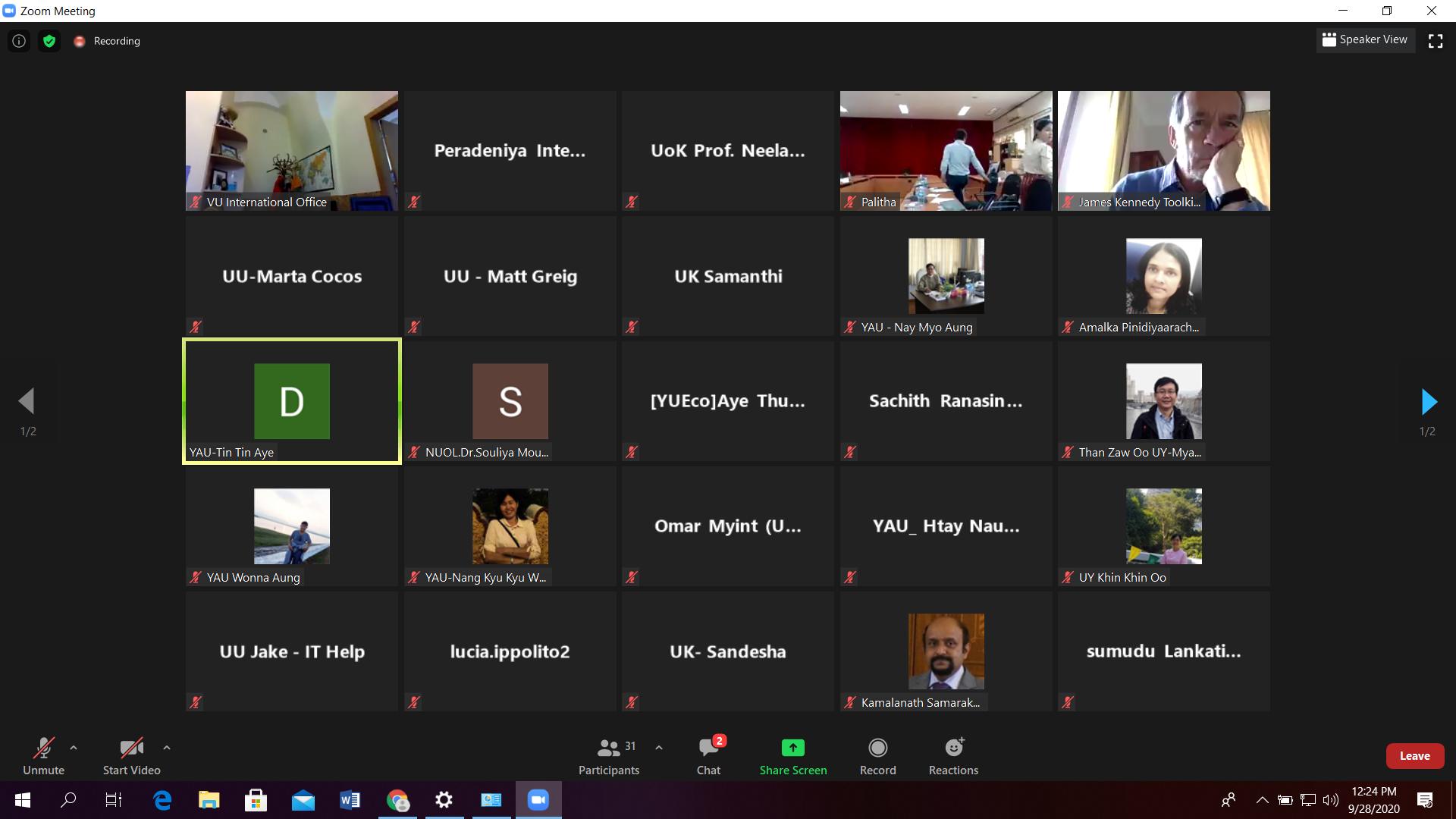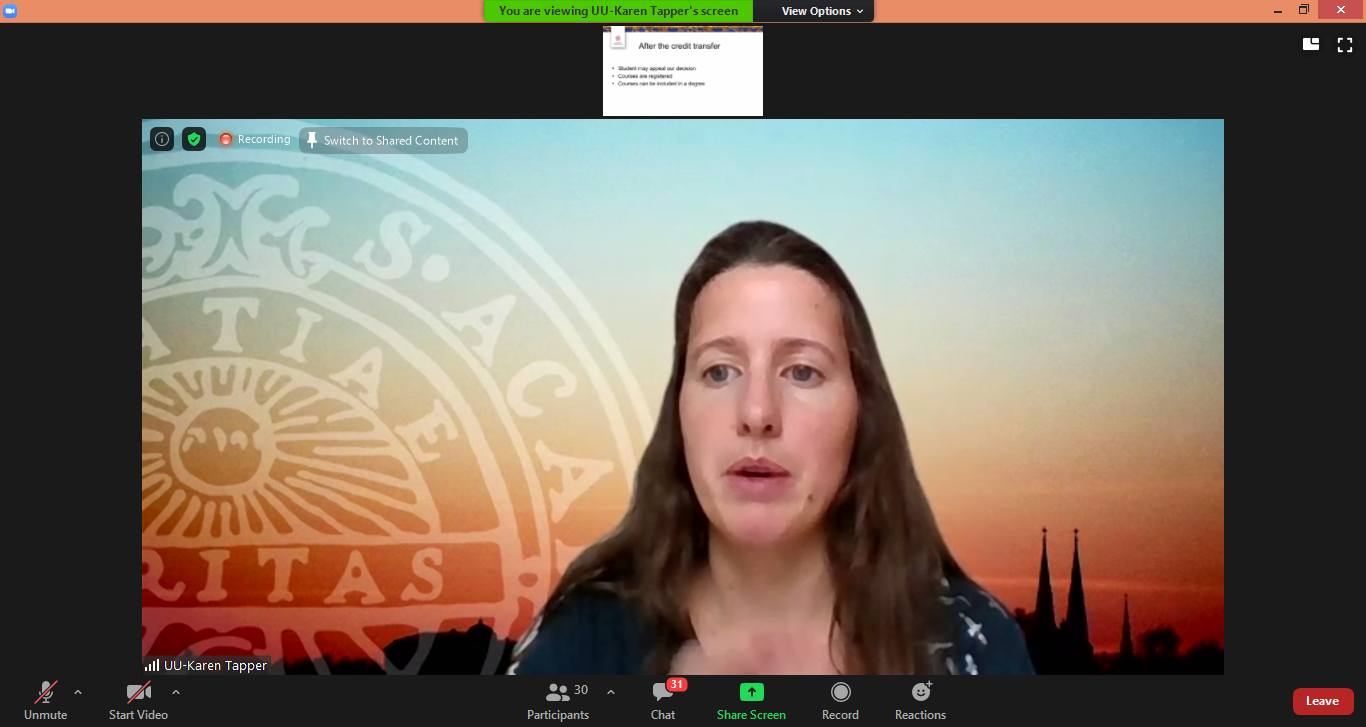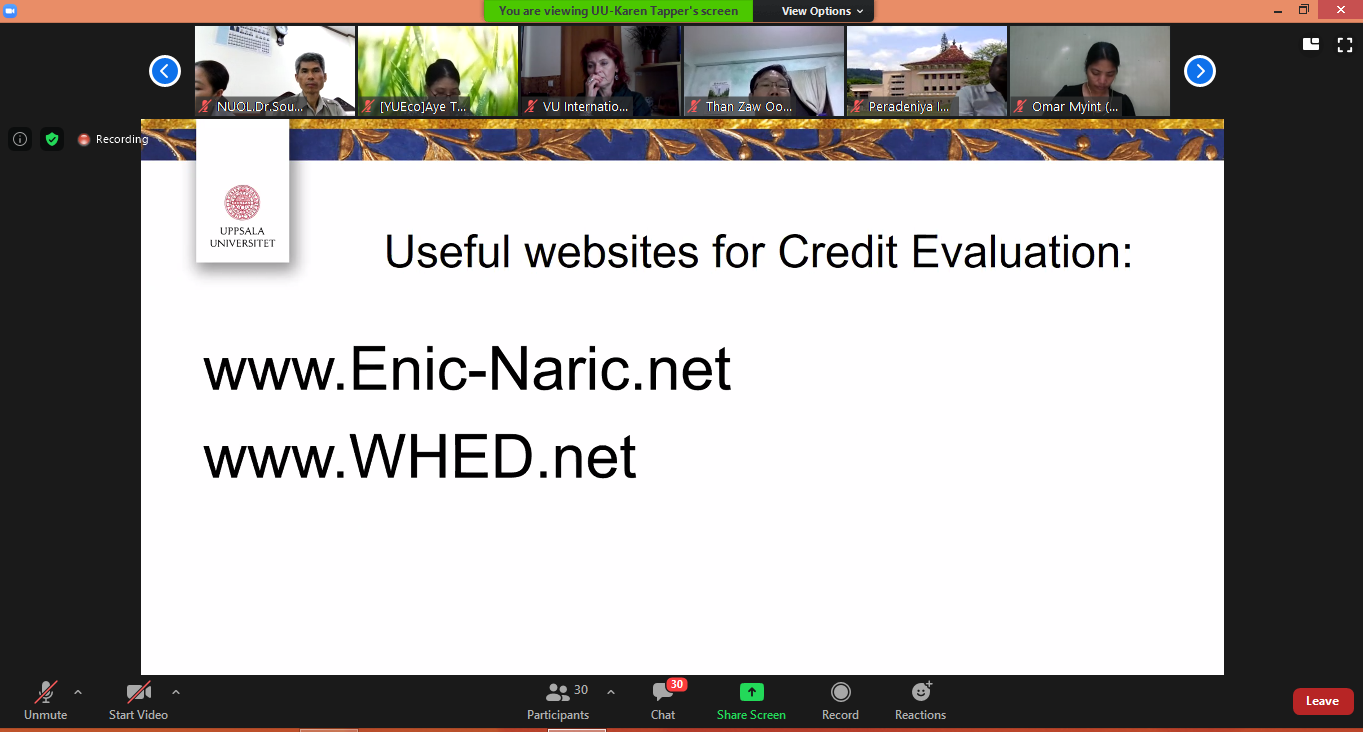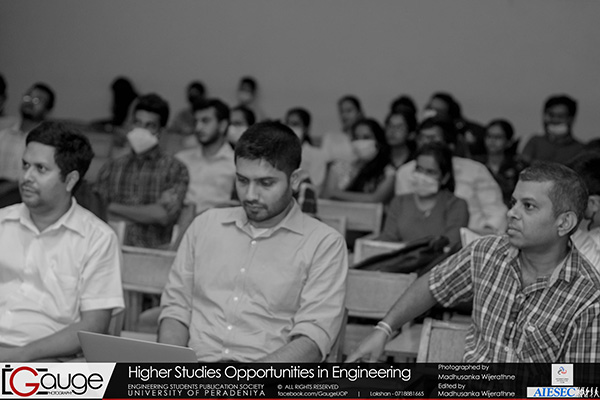InRO News
Toolkit IRO Training Days
28 September 2020TOOLKIT is a multinational Erasmus+project co-funded by the European Union (EU), where university of Peradeniya (UoP) is one of the project partners. The main goal of the TOOLKIT project is to contribute to the process of internationalization undertaken by the HEIs in Sri Lanka, Myanmar, and Laos. In order to enhance and modernization of the different Asian HEIs, the effective Mobility flow management on this matter is essential. According to their perspective, Uppsala University was conducted Toolkit training days program for focusing on improving and setting up International relations offices. This training program took place on Zoom between 28th September to 01st October 2020 with started at 08.00 a.m. Swedish time.
The aim of this training program is to focus on the mobility flows management, and it will consist of two parts, the presentations, and workshops. This included building capabilities within local administration and International Relations offices staff covered in the following areas. Such as,
- Drafting and realization of efficient and sustainable IRO strategies
- Designing and managing innovative education projects
- The design and management of mobility schemes
- Managing growing networks of mobility flows within their respective regions
- Structuring of a process of ‘cascade trainings’ on national and regional levels
- Sharing knowledge and good practices
Uppsala University staff delivered their presentations during the first two days involving unit of Global partnership, unit for international mobility and graduation office. After the first two days of the presentations, the Asian HEIs participated of workshops what they learnt from Uppsala University example and evaluate which aspect could be implemented in their universities. Moreover, they addressed their International relations strategies and started drafting a Toolkit Handbook.
First day of the program two staff members of the Uppsala University deliberated about strategies and management of mobility programs. Second day, four members of Uppsala University were addressed their presentations concerning the area of strategies and management of mobility programs, outbound mobility, and inbound mobility. Day three, participants started to discuss Toolkit handbook which can they use from the European Union partners’ presentations and how should be strategies priorities be and what should be part of the handbook under the working with three chapters of the handbook. Once they discussed, all participants were divided in three working groups. Each focus groups starts to produce a specified chapter of the Toolkit handbook and summarized one-page and chosen one member of the group who will be presented the next day to all participant. Final day of the program nominated member of each group presented for twenty minutes their findings to all participants and other members were given their ideas to help presenter. Finally, the outcomes of this session should me more complete draft of the chapters and wrapped up with future work of handbook and Toolkit.



















